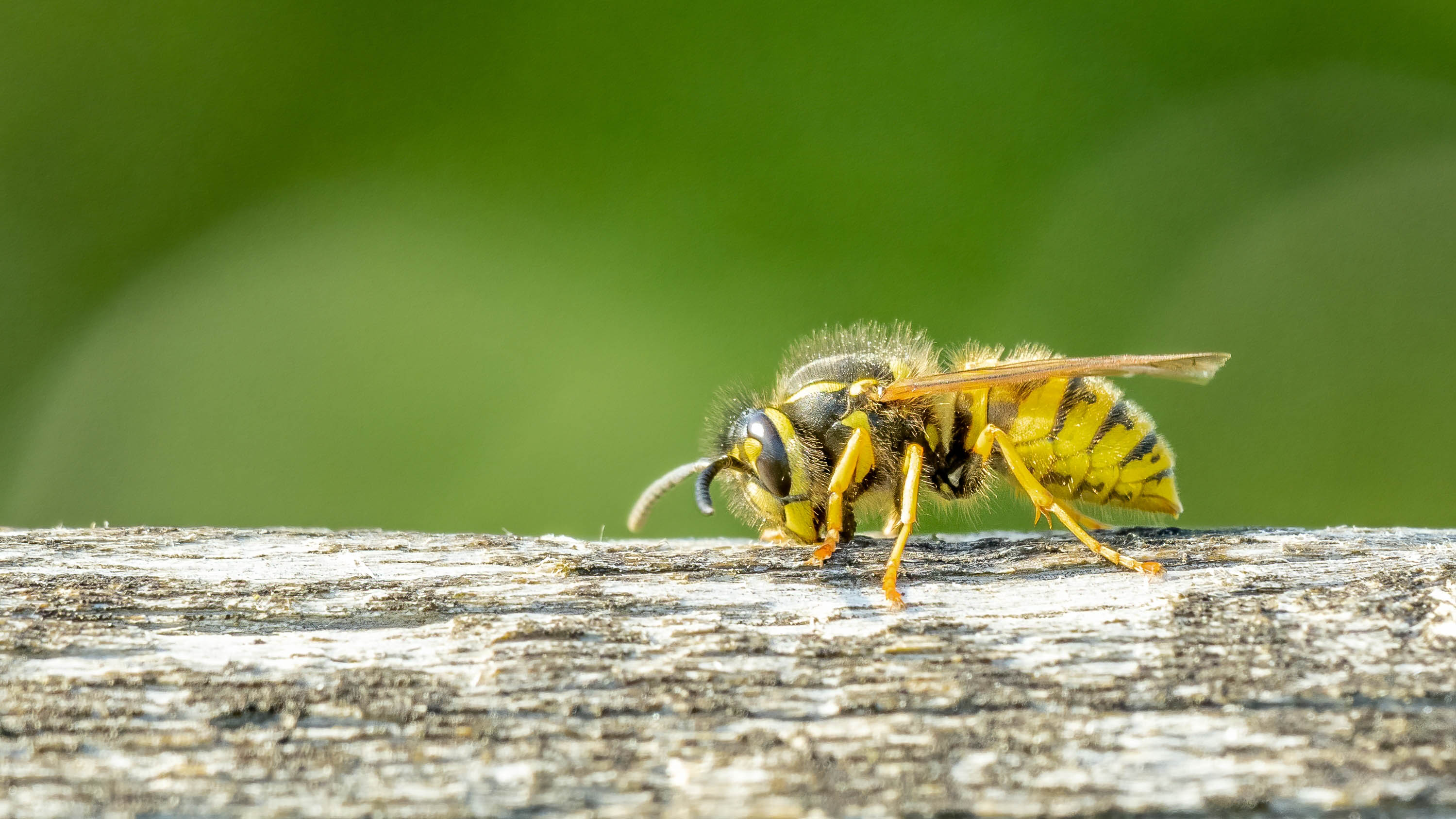
As we head into spring, wasps will inevitably start to frequent our yards. With warmer days and sweet-smelling flowers beginning to bloom, wasps are naturally drawn to this outdoor space. And while wasps will prey on other insects and help with general pest-control, it can be quite frustrating and intimidating if there’s an abundance in your yard.
Should a wasp decide to sting you, it results in painful and inflamed swelling. For those with allergies, the venom can prove to be fatal as well. Being stung is something to avoid at all costs. However, while knowing how to get rid of wasps is essential, it can be good to know how to deter them from your yard in the first place.
One such way you can do this is by planting the right plants. Yes, you read that right.
While some plants will attract wasps with the sweet smell of nectar, others will actively deter them and keep the number of visitors to a minimum. Interested to hear more? Here are 5 plants that will keep wasps out of your yard.
Note: The following plants are unfortunately toxic to both cats and dogs. Try alternative methods if you own pets, referring to how to get rid of wasps for guidance. Care should also be taken if you have young children around the home.
1. Peppermint and spearmint
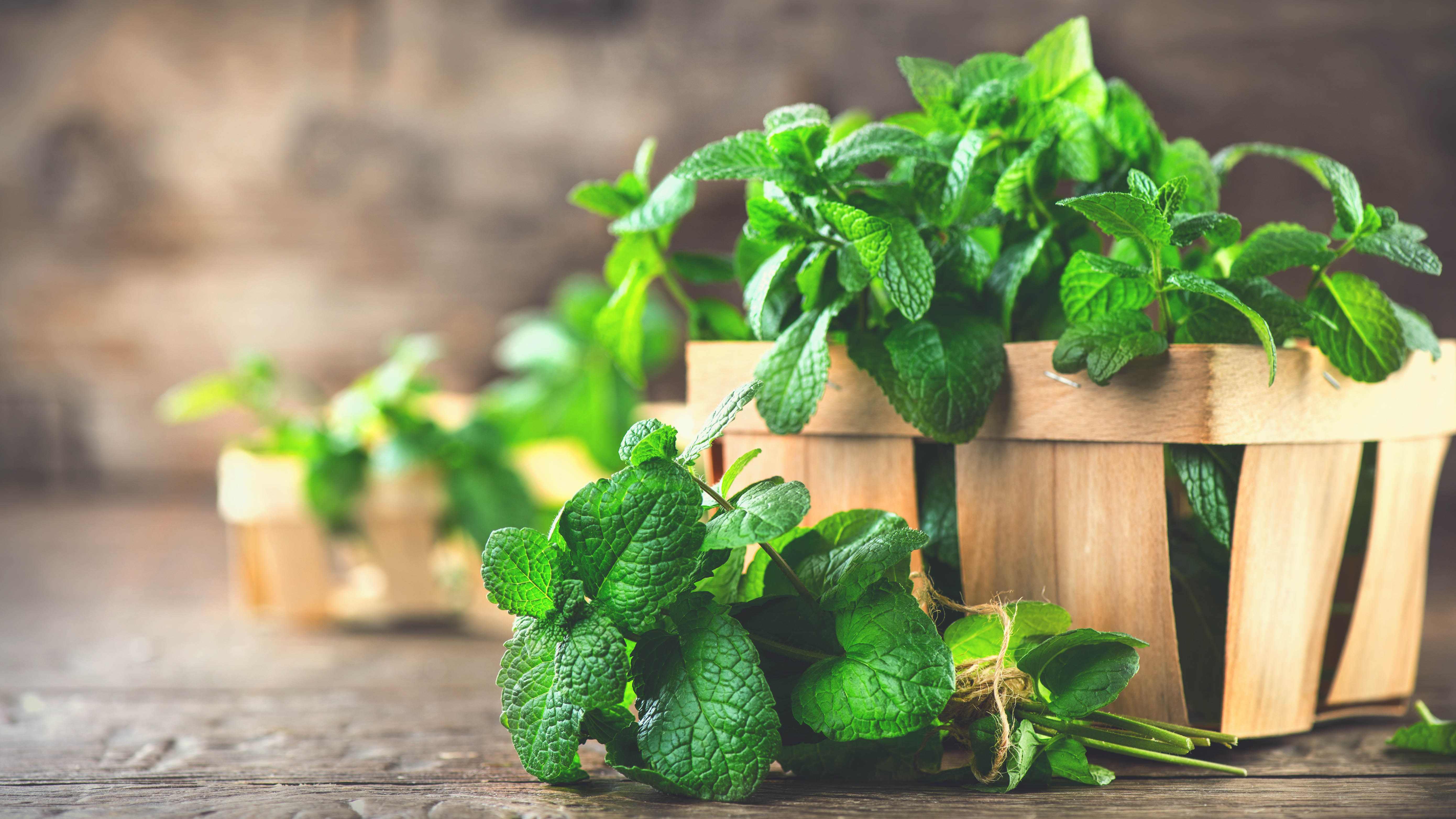
While the smell of mint is refreshing to us, many pests dislike the sharp and intense aroma. For instance, mint will repel flies, ants and even rodents. And wasps are no exception to this trend. A minty fragrance will have wasps flying in the opposite direction, and as peppermint and spearmint smell particularly strong, these are best for repelling such pests.
Being easy to care for and fast-growing, mint can make for a useful addition to any garden. It thrives in full sun or partial shade, with regular water to provide moist soil. Once it’s mature, you can bring the leaves indoors to compliment your recipes as well. However, you should be wary that this herb is so fast-growing that it can become a handful if grown in open soil. You may prefer to plant mint in containers and position these where you actively want to deter wasps, such as near your doors and windows.
2. Wormwood
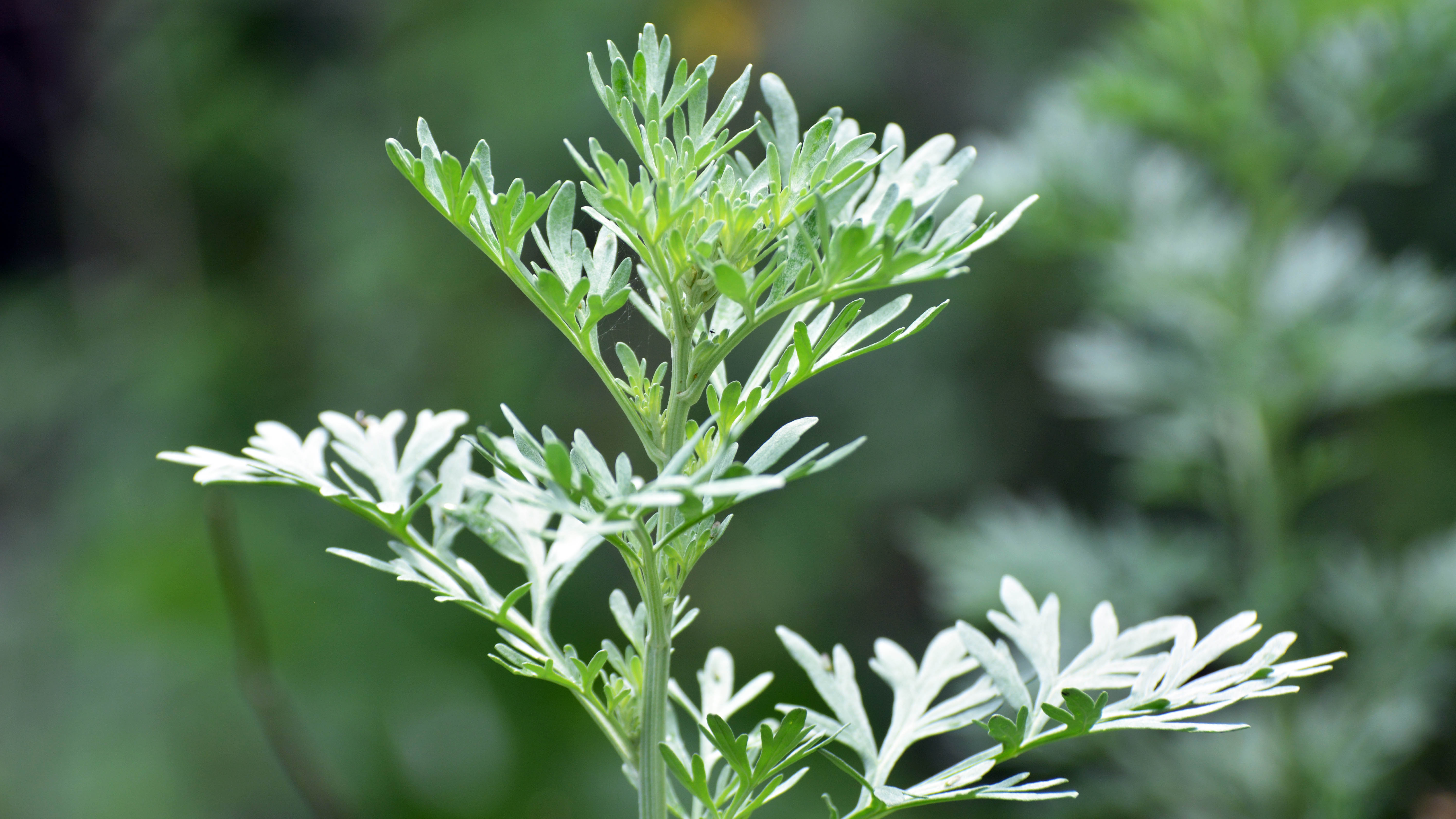
Another plant which will actively keep wasps at bay is wormwood. In the past, this bitter-tasting herb has often been used for medicinal purposes, particularly for aiding digestion and killing internal parasites. It’s also a common ingredient in absinthe and vermouth — its bitterness and aroma contribute to the overall flavor. But wormwood’s uses don’t stop there.
Wormwood contains a substance which is also called absinthe, and this is actually toxic to insects, so wasps will steer clear for a reason. The plant is a danger to them if ingested. So should a wasp detect the smell of wormwood, it won’t hang around.
Wormwood prefers to grow in the sun with conditions on the dry-side — fast-draining soil would be best. It’s a fairly hardy plant and will require space to grow, reaching heights of up to three feet. It can also live for years with proper care. Due to being highly toxic, this plant should be avoided if you have young children running around though.
3. Lemongrass
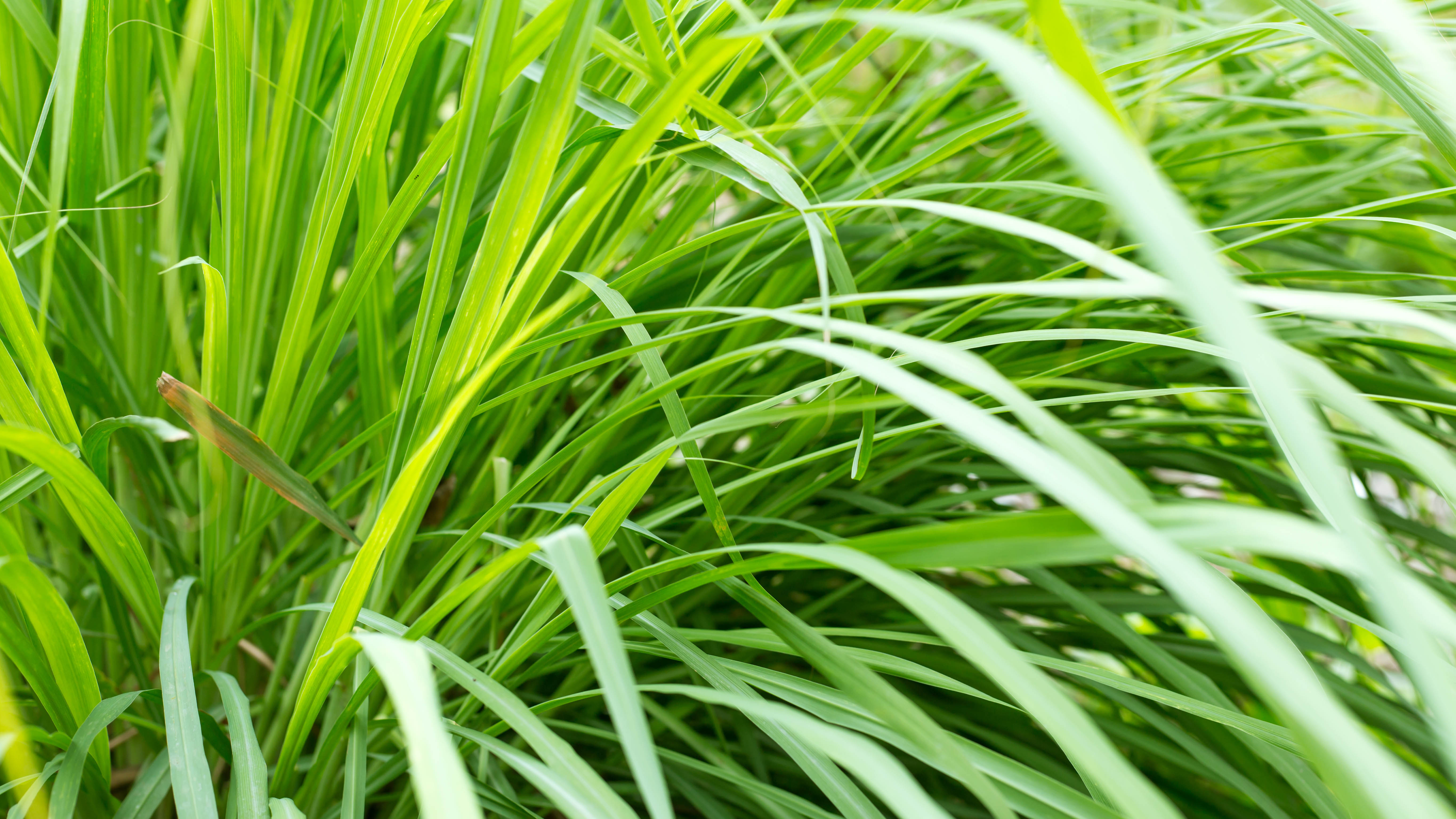
Lemongrass has a great many uses. The stalks can be used to infuse a delicious citrus-flavor into our meals — it’s often found in soups and salads. It’s also used for medicinal purposes, treating all kinds of conditions. Even the common cold can be soothed with lemongrass, thanks to its antibacterial and antifungal properties. If that weren’t enough to convince you to invest in this handy herb, it will help out with a wasp problem as well.
Wasps can’t stand the intense smell of lemongrass, which is produced by the citronella oil it contains. In fact, this lemony scent will keep flies, mosquitoes and rodents at bay at the same time, so it’s a true ally if you struggle with pests in your yard or around your home.
Lemongrass can be grown outdoors, but it does prefer warm conditions, with full sun and temperatures maintained above 40°F. Ideally, you need to live in USDA zones 9-11, or otherwise be prepared to grow it in a container and move it indoors in the winter. Only plant lemongrass once the last frost has fallen and make sure it has adequate space to grow — the leaves will naturally splay outwards once it’s mature.
4. Eucalyptus
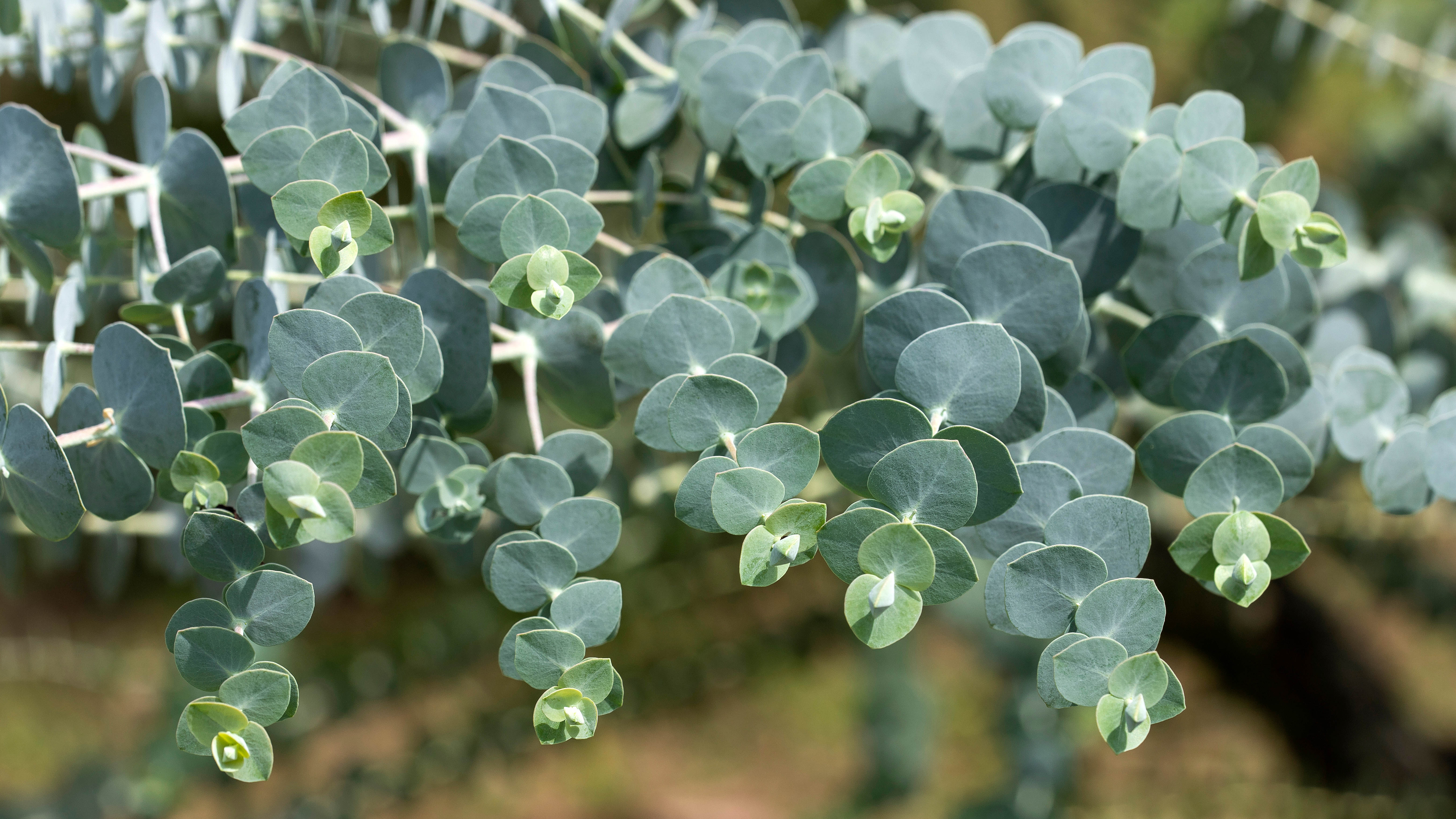
The eucalyptus tree produces an oil which is often used to reduce pain and inflammation. Add to that, eucalyptus oil can relieve congestion, so it’s sometimes found in cold and flu products. Some claim it can help relax and ease stress as well, so it’s a useful thing to extract. The minty and citrusy smell is quite pleasing to us — it’s a popular ingredient in soaps and even mouthwashes. However, wasps and insects aren't fans.
The overwhelming scent will keep all kinds of unwelcome pests at bay. In fact, as well as wasps, the smell of eucalyptus will ward off flies, mites and mosquitoes to name a few. So this tree is certainly worth your consideration if you’ve got a good amount of space available in your backyard. In contrast, fruit trees will actively attract wasps, so consider the best placement to keep wasps away from areas you frequent.
This tree prefers warm and humid conditions outdoors, with temperatures never dropping below 50°F. Full sun is best, while sheltered from cold winds. Keep in mind that these can grow quickly, so you will need a pair of the best pruning shears to hand.
Eucalyptus oil is toxic if ingested, so avoid this plant if you have young children.
5. Pennyroyal
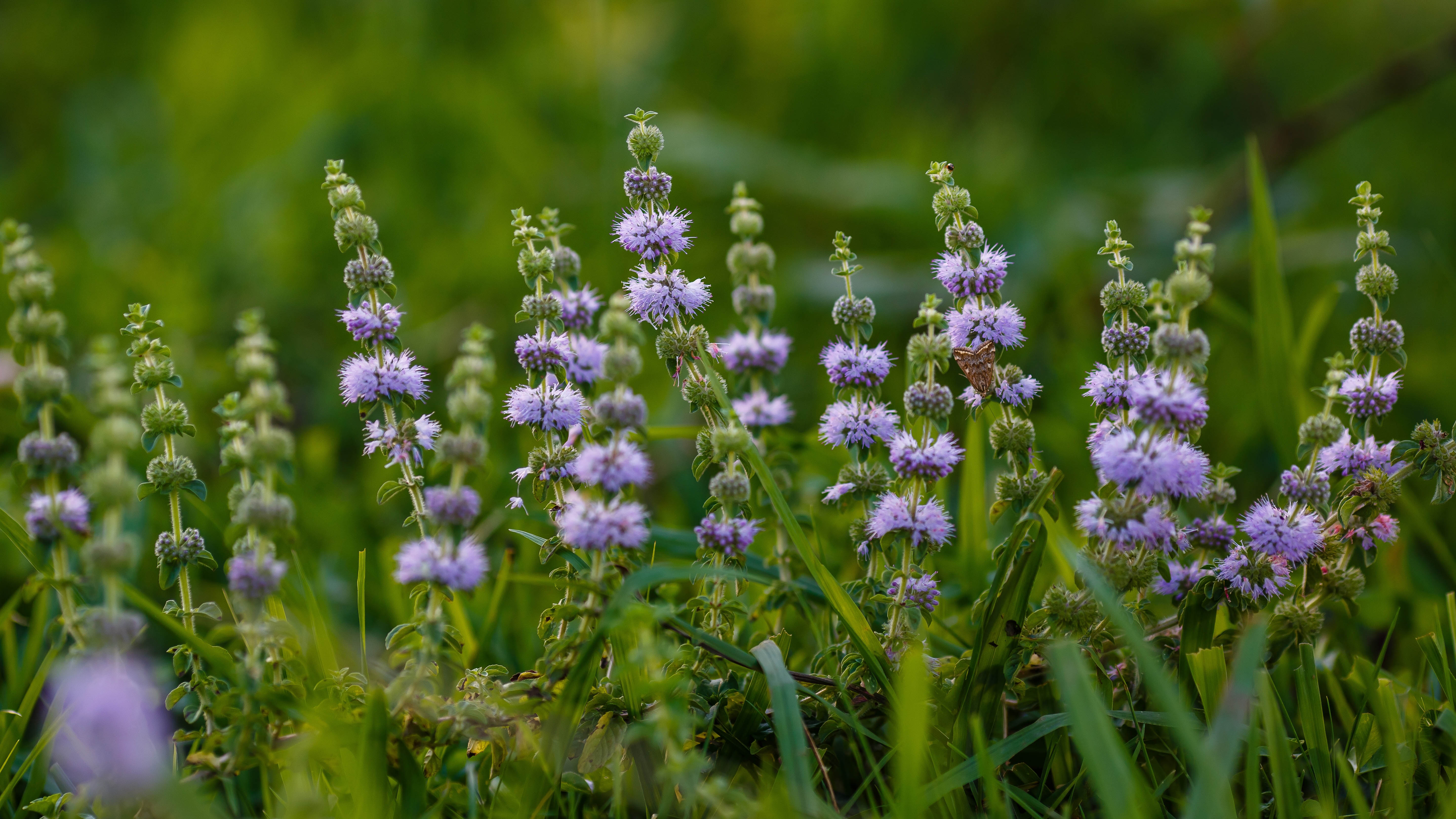
Pennyroyal is another good plant to raise if you’re warding off wasps. This unusual-looking perennial herb produces successive bursts of blooms on its vertical and often cascading stems. It’s quite a sight in any yard, and will keep wasps at bay because of its intense minty smell — it’s actually part of the mint family which is why wasps aren’t overly keen. It’s known to keep flies and fleas away as well, so it can be a useful addition to any garden.
It’s a very hardy herb, growing well in partial shade with moist soil. However, just like mint, it’s fast to grow and can quickly become unruly, so you may want to keep it in containers.
Pennyroyal oil is highly toxic if ingested, so steer clear of this plant if you have young children.







